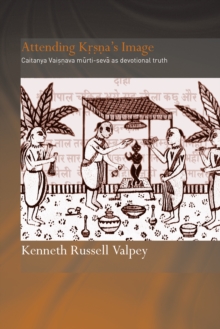
Nonviolence in the Mahabharata : Siva’s Summa on Rishidharma and the Gleaners of Kurukshetra Hardback
by Alf Hiltebeitel
Part of the Routledge Hindu Studies Series series
Hardback
Description
In Indian mythological texts like the Mahabharata and Ramaya?a, there are recurrent tales about gleaners.
The practice of "gleaning" in India had more to do with the house-less forest life than with residential village or urban life or with gathering residual post-harvest grains from cultivated fields.
Gleaning can be seen a metaphor for the Mahabharata poets’ art: an art that could have included their manner of gleaning what they made the leftovers (what they found useful) from many preexistent texts into Vyasa’s “entire thought”—including oral texts and possibly written ones, such as philosophical debates and stories. This book explores the notion of non-violence in the epic Mahabharata.
In examining gleaning as an ecological and spiritual philosophy nurtured as much by hospitality codes as by eating practices, the author analyses the merits and limitations of the 9th century Kashmiri aesthetician Anandavardhana that the dominant aesthetic sentiment or rasa of the Mahabharata is shanta (peace).
Mahatma Gandhi's non-violent reading of the Mahabharata via the Bhagavad Gita are also studied. This book by one of the leaders in Mahabharata studies is of interest to scholars of South Asian Literary Studies, Religious Studies as well as Peace Studies, South Asian Anthropology and History.
Information
-
Out of stock
- Format:Hardback
- Pages:175 pages, 3 Tables, black and white; 2 Line drawings, black and white; 2 Illustrations, black and w
- Publisher:Taylor & Francis Ltd
- Publication Date:12/04/2016
- Category:
- ISBN:9781138646186
Other Formats
- Paperback / softback from £41.45
Information
-
Out of stock
- Format:Hardback
- Pages:175 pages, 3 Tables, black and white; 2 Line drawings, black and white; 2 Illustrations, black and w
- Publisher:Taylor & Francis Ltd
- Publication Date:12/04/2016
- Category:
- ISBN:9781138646186










